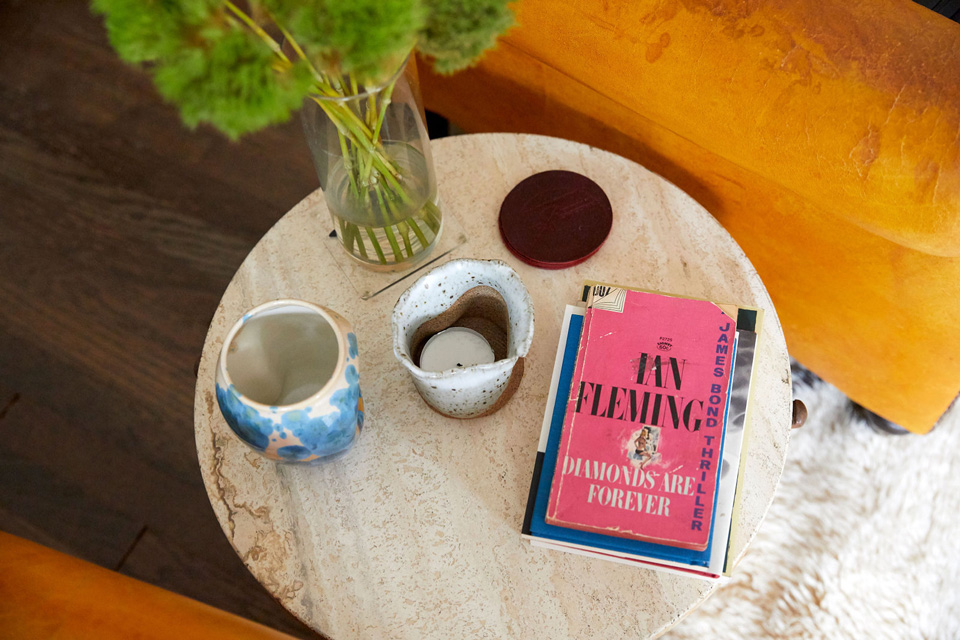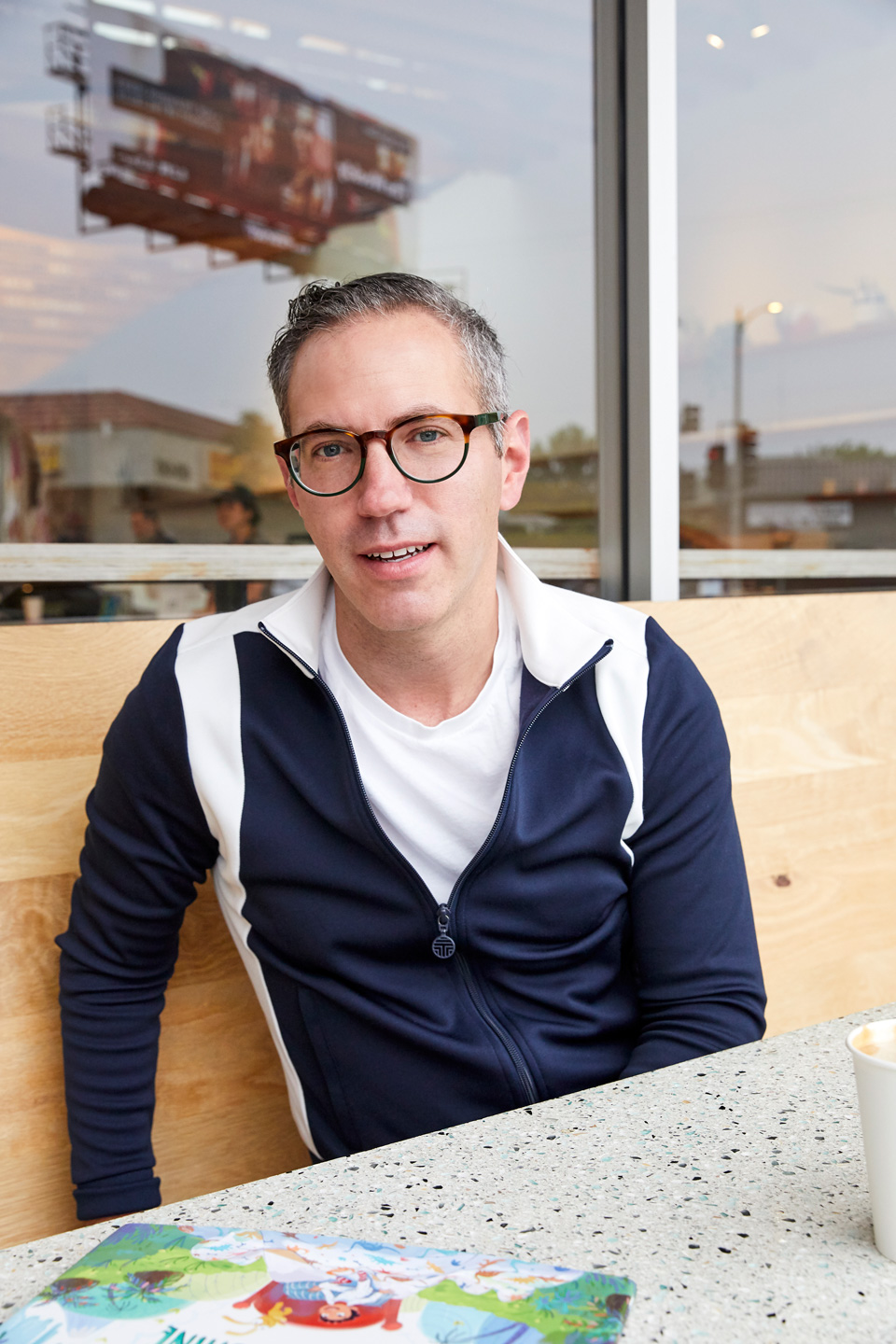
Twenty years after a (very brief stint) teaching kindergarten, Pitch Perfect author Mickey Rapkin has written his first children’s book, It’s Not A Bed It’s A Time Machine. As he explains here, when it comes to time travel, forget everything you think you know…
Before I wrote the book Pitch Perfect (which inspired the surprise hit franchise about a cappella singing), and before I was a columnist at ELLE and an editor at GQ, I taught kindergarten. In Madrid, Spain. I was fresh out of college. And while I had no experience working with children and no real desire to shape young minds, I was very interested in running away to Europe and drinking cheap red wine and dancing at nightclubs with men in bad leather jackets. And so, I answered an ad for an assistant teaching position at an international school. And suddenly found myself standing in front of a chalk board. Como se dice “extreme panic?”
This should be obvious but I’ll state it anyway: I was not a very good teacher. On the first day of school, I gave the class an assignment I’d photocopied out of some teach-by-numbers workbook. I stood back triumphantly—Look at me! I’m teaching!—only to spy a sea of tiny faces staring back at me blankly.
“What’s wrong?” I muttered, wondering why they hadn’t read the instructions and gotten to work.
Oh right. They didn’t know how to read.
Luckily, I was only an assistant. Miss Susan did all the heavy lifting. Which left me to be the entertainment, a role much better suited to my gay skills. At story hour, I’d sit on the carpet and put on silly voices as I paged through dog-eared copies of Dr. Seuss books. We were making our way through the alphabet and when we got to the letter G, I re-wrote the lyrics to the Kenny Rogers song “The Gambler,” turning it into an educational anthem filled with words that all began with G. Everybody now! “The letter G stands for goats, grazing in the garden…” You get the idea.
The job was a means to an end. We were all of us expats running from something. (Me from my sexuality, and from a fear of failing in New York.) Or running as fast as we could, anyway, strapped into those absurdly large, overstuffed tourist backpacks—the kind that make you look like a Ninja Turtle.
It was late summer when I first arrived, and the temperature in central Spain regularly topped 38 degrees Celsius. I didn’t know what 38 degrees Celsius meant, but I knew how it felt, which is to say: Hot as a dragon’s breath. To cool off, we took a tip from the locals, and started drinking Tinto de Verano early and often. Loosely translated, it’s a “summer red wine,” though you might know it by its Boca Raton name: the red wine spritzer. The recipe is simple. Pour a tall glass of cheap Rioja over ice and cut it with a splash of lemon-flavored Spanish soda. Garnish with a slice of citrus. Repeat all afternoon.
Things in the classroom got better. I got better. In the mornings, the kids would come rushing inside, desperate to tell me everything that had happened to them since we last saw each other just twelve hours ago. Even the shy ones were bursting to connect. One of the boys, Miguel, would come in every morning with his hands firmly planted inside the pockets of his festive, plaid pants. “Hi, Mr. Mickey,” he’d whisper before giving me a quick wave, as if his fingers might fly away.
It’s hard not to play favorites (despite what your teachers always said). And Sofia was mine. She wore plain A-line dresses—like one of the Von Trapp kids from The Sound of Music—and she carried herself like a pocket-sized adult, gossiping on the swings with her best friend, Javier. Sofia spoke mostly perfect English. And though her words were sometimes jumbled, her mixed-up cadence was part of her charm. It made everything she said feel wise, or prescient. We took to calling her The Buddha. I swear, She knew things.
I stayed in Madrid for 18 months, feeling like an Ethan Hawke character from a Richard Linklater movie, minus the slacker style and really good hair. (Damn, do you remember how good that hair was? Like a greasy, hockey player brushing a stray wisp out of his eyes with a library card.) But I only taught kindergarten for six months. I was itching to write when I saw an advertisement for an unlikelier job: a British tabloid looking for English-speaking writers in Madrid. I bid a tearful goodbye to Miss Susan and the kids and rode the school bus for the last time.
My stint in the classroom may have been brief. But those six months—and the story-hours, and the “Letter G” song, and the school cafeteria where the ladies put ham on everything—it left a mark. I’ve thought about those kids often over the years. Even more so lately, when I was writing my first children’s book, It’s Not A Bed It’s A Time Machine (out now from Macmillan’s Imprint). It’s the story of a young kid who is painfully afraid of bedtime, and lights-out and the spooky, dark corners of his bedroom. Until his stuffed bunny lets him in on a life-changing secret: His bed is a time machine that can take him anywhere he wants to go.
I started reading children’s books again as a teacher. And I never stopped. I don’t have kids of my own. But when you’re a 40-year-old gay man, you’re often called on to tuck your girlfriends’ tykes into bed so mom can scroll through Instagram with one hand and hold a giant glass of wine with the other.
I understand why kids are afraid of bedtime. But my book and my silly voices come from a simple place: Why can’t bedtime be an adventure? When you think about it, sleep is sort of magic, right? Once you close your eyes—bam!—it’s morning. Nine hours have passed in a flash and pancakes are waiting on the table. That sounds like a dream to me. Or time travel.
I was back in Madrid a decade later on assignment, something I never could have imagined back when I was an anxious 22-year-old tearing through Europe on a hostel budget. (Or maybe it was hostile?) I was no longer running from myself or from New York but I was feeling homesick for those 18 months and the hunger I felt then on that wild, unlikely adventure. And so, I called up the international school, and convinced the administration to let me have lunch with my former students, if any were still around. I was curious to hear what happened to them and to see what (if anything) they remembered of me.
A dozen Spanish teenagers stumbled into the cafeteria where I’d once cut the crusts off their sandwiches. They were gangly and taller now, obviously. But their eyes were the same.
What they said over the next hour was funny if not exactly enlightening. “You played the guitar for us,” one kid remembered. (The letter G stands for great!) Another swore I wore glasses. Which was true.
“Lentes,” I explained. I wore contact lenses now.
I looked around the room, wondering: “What happened to Sofia? Had her family moved away?” No, someone said, she simply had a later lunch period. But she’d heard I was coming and she wanted to meet me that afternoon, near the picnic table on the front lawn.
And so, when the bell rang, I went in search of The Buddha.
She was waiting for me, with long blonde hair and faded blue jeans, looking like a 1970s Carly Simon by way of Pedro Almodóvar. But what stood out most was her confidence. She talked about the economy. In Madrid, they refer to the global economic crisis by a nickname, “La Crisis”—as if The Beast might return one day to finish them off. We talked about college and her plans for the future. Finally, I got up the courage to ask if she remembered anything about those six months where I taught kindergarten.
She smiled. “You told us you’d come back to visit one day,” she said. I hadn’t remembered saying that. “Every year,” she said, “Javier and I would say to each other, Do you think this is the year Mr. Mickey will come visit?”
Not a minute had passed. Maybe the time machine was real.


Mickey Rapkin is the author of Pitch Perfect, which inspired the film series. His first children’s book, It’s Not A Bed It’s A Time Machine, is out now from Macmillan’s Imprint. He lives in Los Angeles.
